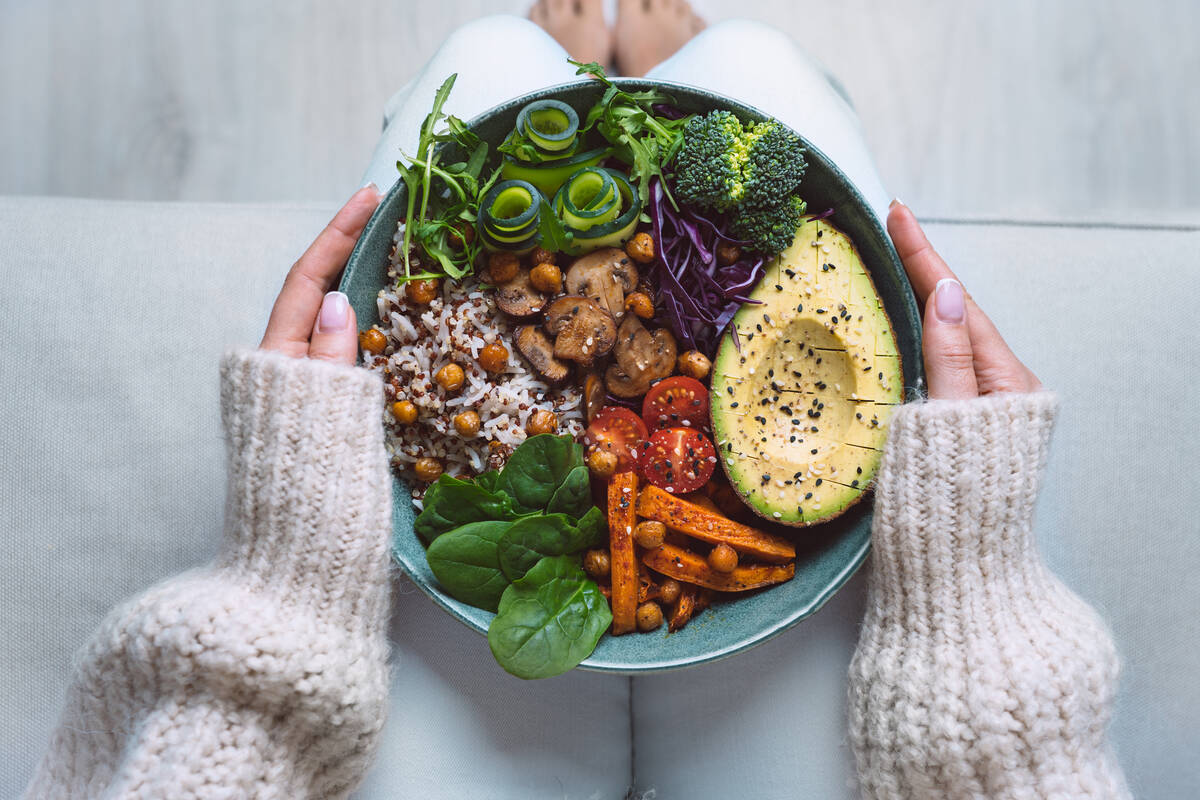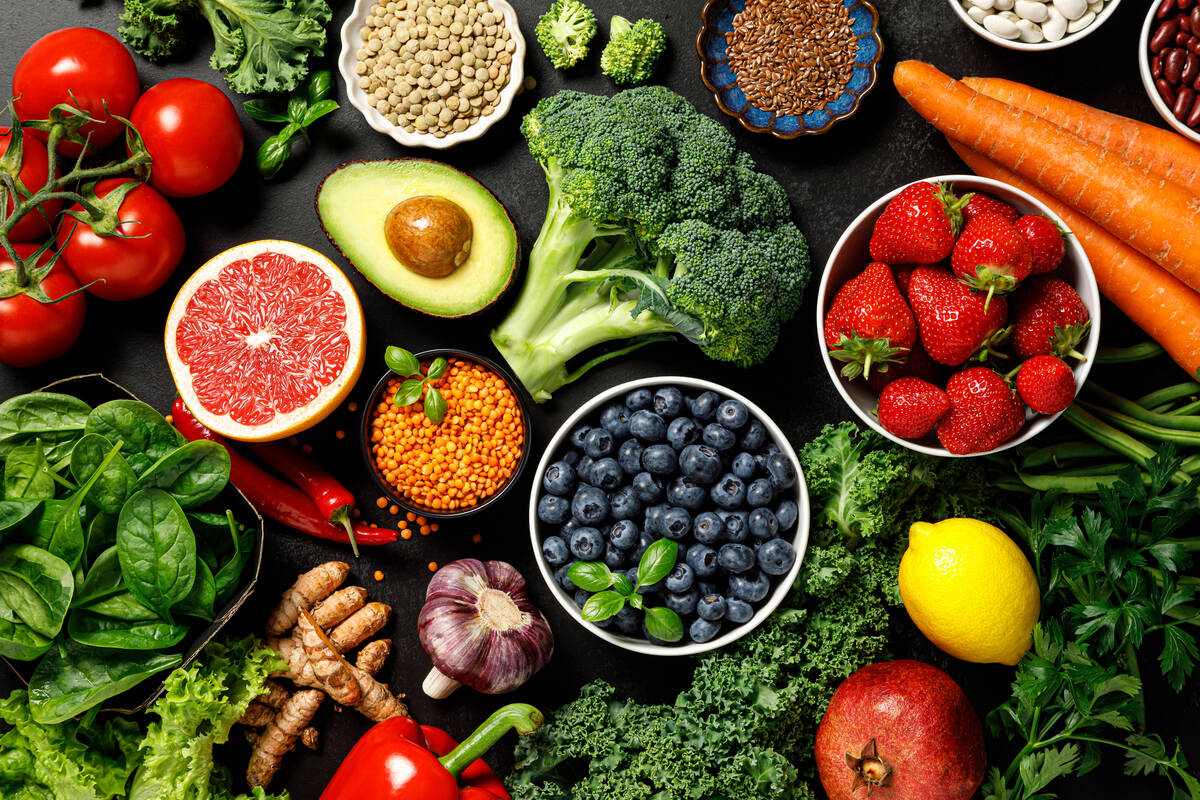This simple diet flex can lower risk of heart disease
Americans love their meat — stacking away an average of 224.6 pounds of meat in 2022. That includes 82 pounds of beef and 51 pounds of pork on their plates each year. Unfortunately, that’s not good news for our cardiovascular systems.
Heart disease remains the leading cause of death globally, and poor diet, including high meat intake, is a significant risk factor. Studies consistently show that high consumption of meat and processed meat is associated with an increased risk of cardiovascular disease.
But what if a simple tweak to your diet could significantly reduce your risk of heart disease without requiring you to go entirely meat-free?
An approach to eating called flexitarianism might be the solution to America’s meat-eating obsession. This approach emphasizes plant-based foods as the foundation of your meals while allowing for occasional meat and processed meat consumption. In other words, it eliminates the all-or-nothing mindset and instead allows for flexibility in your diet.
“The flexitarian diet is a flexible approach to plant-based eating that is gaining popularity among those seeking a more accommodating lifestyle,” dietitian Sarah Harper says. “They want a flexible, individualized and sustainable approach to plant-based eating, without strict rules.”
This approach is more popular than vegetarian or vegan diets. “The trend of people choosing flexitarian diets is on the rise because of a growing awareness of the environmental impact of meat consumption and healthier eating habits.,” adds Mayank Pandey, a dietitian and co-founder of Healthroid.
Dietitian Jennifer Pallian of Foodess agrees: “(It) doesn’t demand strict adherence, making social situations simpler to navigate, and making it an easier lifestyle change overall.”
But what about cheese?
Red meat consumption is declining, but cheese consumption is increasing. Compared with the established links between high red meat consumption and cardiovascular health, moderate cheese intake has a neutral effect on human health. However, dairy cheese is high in saturated fat, which can have negative health implications.
Another benefit of a plant-based diet is its environmental impact. Cheese production generates significant greenhouse gas emissions compared with other animal products such as fish, pork, and poultry, as well as plant-based options such as olive oil and tofu.
Also, lactose intolerance affects a sizable portion of the population, with estimates ranging from 15 percent for Caucasian adults to 85 percent for African American adults, based on results from the American College of Gastroenterology. These factors suggest that reducing cheese consumption may be worth considering from an environmental and personal health perspective.
“I have found that cheese is one of the more challenging foods to move away from when going flexitarian,” says Sandra Chavez, a registered dietitian nutritionist and a freelance health writer.
This is where plant-based cheeses come in. “Many of the newest brands melt like dairy-based cheeses and have a great flavor,” Chavez says. “This helps people have their favorite cheesy meals while supporting a more plant-forward/flexitarian lifestyle.”
GOOD PLANeT is one of these choices but with a heart-healthy slant. The first of its kind among vegan cheese brands, it uses olive oil in its dairy-free cheeses to create melty, delicious options with a more sustainable footprint than traditional dairy cheeses. These products are often lower in calories than dairy cheese, with zero cholesterol and minimal saturated fat, providing a heart-healthy option for those who want to limit or avoid dairy cheese.
“Many vegan cheeses are made with coconut oil, which is high in saturated fat. The switch to olive oil in GOOD PLANeT’s newest cheese means that it’s better for both people and the planet,” says Bianca Tamburello, a registered dietitan nutritionist with GOOD PLANeT Foods. “You don’t have to give up animal products, including cheese, completely.”
Flex for better health
A February 2024 BMC Nutrition study offered promising news. Researchers compared the cardiovascular health of flexitarians, omnivores and vegans. Flexitarians and vegans fared better in key health markers such as insulin, triglycerides and cholesterol (total and LDL) — all crucial for heart health.
The study also revealed that flexitarians with a primarily plant-based diet and occasional animal-based consumption had the most favorable metabolic syndrome results, which factors in body weight and waistline.
Additionally, flexitarians and vegans reported consuming significantly higher amounts of vegetables, fruits, nuts, seeds and plant-based dairy alternatives than omnivores, suggesting that a dietary shift toward more plant-based options, even if not wholly vegetarian, can substantially affect cardiovascular health.
Focus on fiber
Fiber, found abundantly in fruits, vegetables, whole grains and legumes, is crucial in reducing the risk of heart disease. It promotes healthy gut bacteria growth, moves food through the digestive tract and may help lower inflammation.
Dietary fiber might be key to assessing the benefits of a flexitarian approach compared with an omnivorous one. The same BMC Nutrition study revealed that flexitarians and vegans consumed significantly more plant-based milk alternatives, dairy replacements, meat substitutes, fruits and vegetables than omnivores. Conversely, they showed a lower intake of sugary drinks and sweets.
This dietary pattern aligns with U.S. Department of Agriculture recommendations, which suggest that 75 percent of one’s diet should come from plant-based sources. Half the plate should contain fruits and vegetables. Whole grains and protein sources such as lean meats, legumes or nuts should each make up one-quarter of the total.
For a flexitarian diet, “the prime benefit is they are gaining a lot more nutrients like fiber, vitamins, minerals and antioxidants from eating more plants than you would see in someone who is choosing more animal-based proteins like fish, chicken, and beef,” says Shannon Jacobs, a registered dietitian nutritionist with Canyon Ranch.
Even without a complete dietary overhaul, incorporating more plant-based meals is heart-healthy. So, next time you plan your meals, consider adding a colorful veggie stir-fry, a lentil soup or a black bean burger topped with olive oil-based cheese.
Your heart — and the planet — may thank you.














